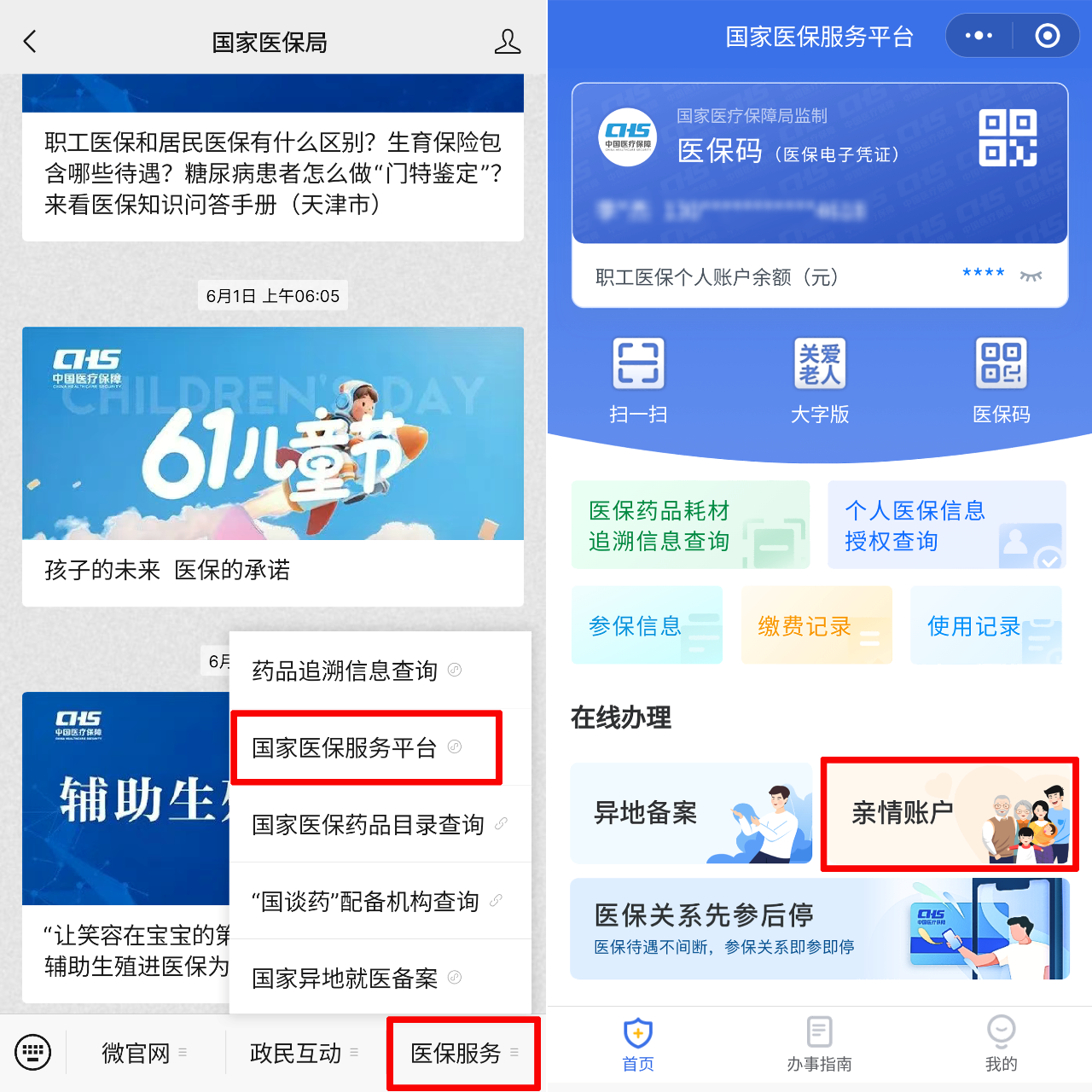When elderly family members have difficulty traveling, can their children get medicine for them? Can I use the money in my medical insurance for family members? After setting up “family pooling,” whose card (code) should be used for medical treatment and medicine purchases? What are the consequences of not using one’s own medical insurance for treatment?
1. When elderly family members have mobility difficulties, can their children get medicine for them? Whose medical insurance code (social security card) should be used for registration and medicine?
Yes. Article 17, Paragraph 2 of the “Regulations on the Supervision and Management of Medical Security Fund Use” clearly states: “When special circumstances require entrusting others to purchase medicine on one’s behalf, identification documents of both the entrusting party and the entrusted party must be provided.” Therefore, when elderly family members have mobility difficulties or other special circumstances, children can purchase medicine on their behalf.
When getting medicine at a hospital or pharmacy on someone’s behalf, whose medical insurance code (social security card) should be used for registration and medicine purchase?
First, if using an electronic medical insurance code, you can bind the elderly person’s medical insurance code through the “family account” feature, and present their medical insurance code during registration.
Second, if using a physical card, you need to bring the elderly person’s social security card, register under their name, and bring your own identification documents (ID card, social security card, etc.).
For example: When Xiao Li goes to the hospital to get medicine for Old Li, he can bind Old Li’s medical insurance code through the “family account” feature and directly use his phone to scan Old Li’s medical insurance code during registration.
2. Can I use the money in my medical insurance for elderly family members?
The balance in an employee’s medical insurance personal account can be used for family members through family pooling, but the pooled fund cannot be shared. The balance in an employee’s personal medical insurance account can be used for close relatives including parents, spouse, children, siblings, grandparents, grandchildren, but must meet two conditions: first, your close relatives must also be enrolled in basic medical insurance (including employee medical insurance and resident medical insurance); second, you must have set up employee medical insurance personal account family pooling. Please note: family pooling applies to the employee’s personal medical insurance account balance, not the pooled fund.
3. After setting up “family pooling,” whose code (card) should be used for medical treatment and medicine purchases?
Money can be pooled, but codes (cards) cannot be shared! Under all circumstances, medical treatment and medicine purchases must use the patient’s own code (card). The family pooling policy “pools” the money in the employee medical insurance enrollee’s personal account, not the code (card) itself. Medical insurance follows the principle of “individual enrollment, individual benefit entitlement.” This principle remains unchanged after family pooling – enrollees still use their own medical insurance for medical treatment and enjoy their own medical insurance benefits according to regulations.
4. What are the consequences of not using one’s own medical insurance for treatment?
Not using one’s own medical insurance for registration, medical treatment, or medicine purchase constitutes “fraudulent medical treatment using another’s identity.” According to relevant laws and regulations, minor cases may result in suspension of one’s medical expense online settlement, while serious cases may constitute criminal offenses. Additionally, the medical insurance information platform records your medical history in real time, which may affect future diagnosis and rehabilitation treatment for related conditions.
The balance in employee medical insurance personal accounts can be pooled, but no one’s medical insurance code (social security card) can be shared!




